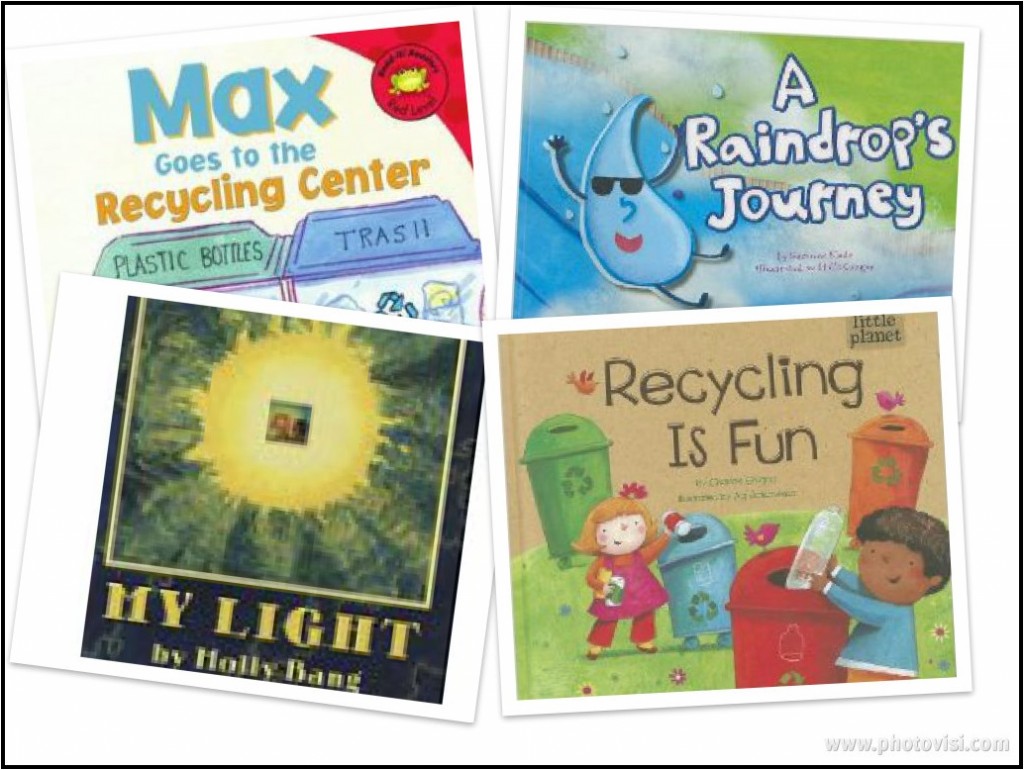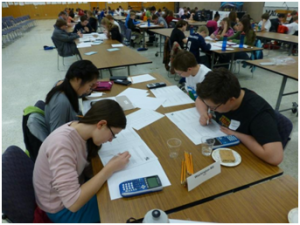Read about Amy’s new experience with teaching environmentally based lessons to children ages 3-5:
One program that HACAP offers that may not seem like a natural fit with Energy Corps is Head Start. Head Start and Early Head Start are comprehensive child development programs that serve children from birth to age 5, pregnant women, and their families. They are child-focused programs and have the overall goal of increasing the school readiness of young children in low-income families.
I was approached during the summer by an alum of Energy Corps that worked at HACAP as a Head Start Family Support Worker and she asked if I would be interested in bringing environmental and science based lessons to Head Start children. I immediately said yes, even though I had limited experience with children ages 3-5 and no experience trying to teach them! I spent the month of September brainstorming ideas and started teaching once a month beginning in October. I have taught lessons on Wind, the Water Cycle, Recycling and Energy. My lesson plans range from 30-45 minutes and I try to incorporate different learning styles (visual, auditory and kinesthetic) into each plan. I visit four different classrooms each month with children ages 3-5, each classroom has between 10 and 16 children.
I have a lot of energy and so do these children which results in a lot of fun. The lesson on Wind incorporated throwing leaves into the wind, playing with streamers outside, listening to wind chimes and reading a story. For the lesson on the Water Cycle, I was inspired by a story that I read one night tucking my four year old half brother into bed called A Raindrop’s Journey by Suzanne Slade. In addition to reading the story we also listened to a song about the water cycle and danced! Then each child crafted their own water cycle. The lesson on recycling was a hit because we made a huge mess. I started by dumping a pile of “garbage” in the middle of the group. Then piece by piece we decided what went to the landfill and what could be recycled. The children really liked seeing how little ended up in the trash can. Then for the Energy lesson plan we learned about kinetic and potential energy by moving and being very still. I would say “Do kinetic energy” and we would move around wildly and then I’d say “Now potential” and we’d all be really still. I was surprised by how long they would stay in the potential energy state. We also danced to a song, read a story (My Light by Molly Bang) and had a craft about different types of Energy.

One challenge to working with this age group is doing pre and post learning. I tried using the red and green cards that other Energy Corps members used with older children, however, this was not successful. The concept was too complex for this age group and they couldn’t stay on task long enough to have meaningful results. With help from Energy Corps Staff, I implemented a new technique to capture post learning the last time I visited the classrooms. I asked the children to draw a picture of something learned from the class that day. The results ranged from scribbles that weren’t identifiable to pictures of wind turbines, the sun and solar energy!

So while Head Start and Energy Corps may initially not seem like a good fit, I’ve found my experiences with the children to be fun and meaningful. Exposing children to these concepts early helps them to have a foundation of knowledge that they can build upon as they get older. I’m looking forward to teaching the children about where our food comes from this month! Bringing dirt into the classroom seems like a great idea, right?
 Amy Luebbert has a B.A. in Geography with a minor in Anthropology. She volunteered in Des Moines, IA as a community organizer with Oxfam America from 2011-2013. This experience offered her the opportunity to lobby on behalf of small scale farmers around the world, engage and inform the public on issues of hunger and poverty, organize events, manage volunteers and develop a social media presence for their local group. Amy has seven years of experience in the corporate world and is excited to have the opportunity to pursue a career more in line with her passions. Amy will be working with HACAP to promote energy efficiency and conservation through public trainings. She will assist in energy-related certification presentations and educate residents about heating system maintenance and general energy conservation education.
Amy Luebbert has a B.A. in Geography with a minor in Anthropology. She volunteered in Des Moines, IA as a community organizer with Oxfam America from 2011-2013. This experience offered her the opportunity to lobby on behalf of small scale farmers around the world, engage and inform the public on issues of hunger and poverty, organize events, manage volunteers and develop a social media presence for their local group. Amy has seven years of experience in the corporate world and is excited to have the opportunity to pursue a career more in line with her passions. Amy will be working with HACAP to promote energy efficiency and conservation through public trainings. She will assist in energy-related certification presentations and educate residents about heating system maintenance and general energy conservation education.








